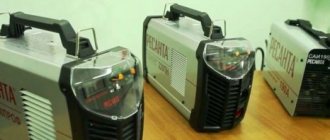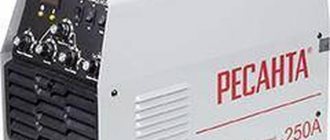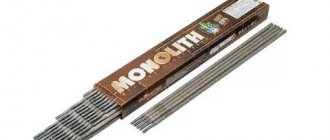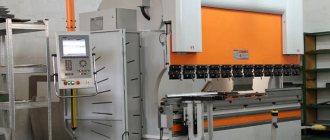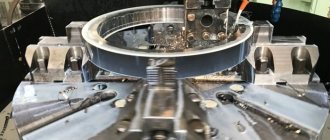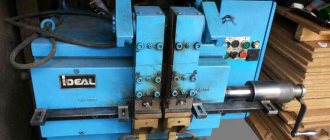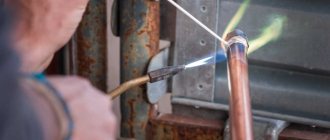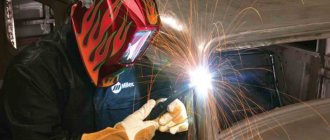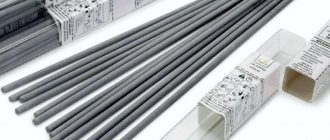The Kempy welding machine is a prominent representative of high-class inverters.
Each device of this company is equipped with a modern electronic system that constantly analyzes the operation of the device, making adjustments to its operation if necessary. Almost any inverter from this manufacturer is capable of operating from an electrical network with a voltage of 220 volts. Kemppi welding machines are positioned as devices for professional work and can be widely used in all areas of modern production. This is due to the wide variety of models and their types produced.
General information about the manufacturer
Kemppi was founded in Finland by the Kemppi brothers.
She was born in 1949. Today it is a well-known brand, which is a leader in the production and sale of welding equipment on the modern market. The quality of the products manufactured by the company is confirmed by ISO 9001 and ISO 14001 certificates. All devices, their parts and assemblies comply with European standards (CE), which are very demanding regarding environmental protection and work safety.
Until recently, the development and production of Kemppi welding machines was carried out only in Finland in the city of Lahti. But recently, production centers have been opened in countries with great potential: India and Malaysia. They have managed to cover most of the markets in the Asian and Pacific regions.
In addition, the company has sixteen accredited centers around the world, including in Russia. Their task includes warranty and post-warranty maintenance of equipment, as well as its repair. Service companies are represented by highly qualified specialists who have at their disposal modern diagnostic equipment, the necessary spare parts and materials for quickly restoring the operating functions of the devices.
Where are they used?
Kemppi equipment can be used equally effectively in both industry and the private sector. It is recommended for the following types of work:
Construction of metal structures;- Connections of pipelines related to the gas and oil industries;
- Welding of machine elements and machine tools;
- Creation of load-bearing frames;
- Installation of various building structures;
- Elimination of breakdowns, defects and damage to vehicles in service centers;
- Connections of structural segments in shipbuilding;
- Manufacturing of industrial metal products;
- Repair of communication nodes;
- Solving everyday problems in the process of running a personal household.
Defects in welds, reasons for their occurrence
It is almost impossible for a novice welder to avoid mistakes that lead to the following flaws:
- undercut appears when the torch moves too quickly, the arc is long, or the current is high;
- if the movement is too slow, the metal flows down under the influence of gravity, an influx is formed;
- pores are formed due to poor gas protection, poor-quality surface pre-treatment, or too high a work speed;
- low welding speed at high current can cause through-burning of the metal, which is also caused by an incorrect initial gap (too large);
- lack of penetration occurs due to a small gap, contaminated metal and insufficient welding voltage.
The appearance of defects in welding seams can be completely avoided; it is enough to know the reasons for their occurrence and try to avoid mistakes. With experience, the number of flaws will become less and less.
Types of inverters
The range of welding equipment produced is represented by three classes:
- Household appliances. This type of equipment allows for manual arc and argon arc welding from a two-phase network. The work uses electrodes with a diameter of up to 4 millimeters. The welding current can be set up to 200 amperes. The process of operations can be controlled thanks to a digital panel located on the equipment. The devices have a stable arc and can be used for welding products made of aluminum alloys and thin sheets of non-ferrous metal.
Semi-automatic devices. These devices are equipped with an automatic wire feeding system to the area of the surface to be welded. Semi-automatic machines are easy to use, easily removed and transported to the welding site. The campy semi-automatic welding machine is used to carry out work in an active or inert gas environment - MAG, MIG. Thanks to simple selection of settings, the period of welding work is reduced and labor productivity is increased. This type of welding machine is especially popular when joining thin-walled products and is widely used in the automotive industry.- Industrial machines. The devices in this line have large dimensions and significant weight indicators, they operate from a three-phase network and are characterized by a high welding current - up to 800 amperes. Thanks to the presence of a system with a stepless mode, the energy efficiency of the equipment increased by 10%. The equipment is transported on special trolleys that come complete with the devices. These units are used in shipbuilding and the drilling industry, where the assembly of heavy and massive metal structures is required.
Advantages
Regardless of the functionality of the device, the equipment of the Finnish company Kempi has a number of qualities that distinguish it from its analogues. Thanks to the use of stepless settings, manufacturers managed to achieve energy savings of 10%. If this figure does not mean anything in everyday life, then on an industrial scale the savings are quite good. When switching to idle mode, energy consumption is reduced by 8 times.
Expert opinion
Bagrov Viktor Sergeevich
Welder of the highest 6th category. He is considered a master of his craft, knows the intricacies and nuances of the profession.
One of the indicators of the efficiency of a device is its efficiency. If we compare with analogues, Kemppi models have a higher indicator. The average efficiency of installations reaches 87%.
It should also be noted the high degree of adaptation to difficult climatic conditions. The temperature range in which the Kemppi semi-automatic welding machine can operate is very wide, it covers both negative and high positive values. In addition, the device is reliably protected from moisture and dust.
The semi-automatic inverter can easily withstand voltage surges. Not only is it not afraid of increased and decreased values from the nominal value, it continues to perform high-quality welding, even if the voltage drops to 160 volts. Due to the high welding current, most industrial machines are capable of working with almost any electrode. Let us remember that there is usually a limitation on the diameter of the electrodes used.
Welding modes are controlled from a special panel, but some models provide remote control. This function is simply irreplaceable when carrying out work at height, when the device remains on the ground. The information content of the panel accompanies the master’s full control over the process. All parameters are displayed on a digital display.
Features and models
Kemppi welding machines are distinguished by their reliable assembly, high level of performance and long service life. The following models have proven themselves well in domestic production: Kemppi Minarc 150 and KEMPPI Kempact MIG 2520.
Kemppi Minarc 150
Kemppi Minarc 150 is a compact device for working with any type of piece electrodes. It is connected to a single-phase network with a voltage of 230 volts. The mass of the device is 4.0 kilograms. Its power consumption reaches 10 kilowatts. Minarc 150 has proven itself when working with long cables (mains and welding); it is able to withstand large voltage surges, which is why it is in demand on construction sites that are powered by a generator.
The lineup
The total number of welding machine models is unusually large. They all differ in the provided welding modes, power and maximum current value. At the same time, industrial devices are considered more functional, as they have many additional functions. However, the catalog from the official representative breaks down the models into categories, depending on the type of work performed.
Welding in TIG mode is carried out in a gas environment. Argon acts as a shielding gas. The material for this mode is tungsten electrodes. The mode itself is divided into two types.
- The TIG-DC (direct current welding) mode is used for steels.
- TIG-AC mode (alternating current welding) – for aluminum alloys.
Features of the technology allow you to obtain an even seam and avoid metal spattering. This method is used for welding thin sheet metal.
- MinarcTig Evo 200/200MLP. An inverter semi-automatic device that provides stable ignition of the arc even at a current of 5 A. The maximum welding current is 200A. The device is connected to a single-phase network. There are functions of a gas supply timer and changing the welding current. MLP models weld in pulse mode.
- MinarcTig 250, 250MLP. Mobile and compact welding machine. It also has good arc ignition. The high quality of the results allows it to be used in operations requiring pinpoint precision. Maximum current – 250 A. Connects to a three-phase network. It is possible to work in MMA mode.
- MasterTig MLS 3000/4000. Allows you to maintain good arc ignition even when using a long cable. High frequency pulse welding increases the productivity of the device. Operation from an alternating current generator is possible.
MMA mode involves manual arc welding performed with coated electrodes. It is used in working with carbon steels and stainless steel. While carbon steel can be welded using alternating and direct current, stainless steel can only be welded using direct current. This mode is advantageous due to the absence of gas cylinders, variability of welding planes, and high efficiency. However, during operation it is necessary to constantly remove slag from parts.
- MINARC 150, MINARC 150VRD. This inverter is only available in Finland and combines MMA welding with the ability to switch to DC TIG mode. The maximum diameter of electrodes for this device is 3 mm. The case made of special plastic protects the device from shock and moisture. You can work even in the rain. The inverter weighs only 4 kg and is equipped with a strap for easy carrying. Powered by a single-phase network. Welding current is adjustable from 10 to 140 A.
- FastMig KMS 400 AS. A number of features of this model can be highlighted. These include power regulation, starting current power control, changing arc parameters and the ability to select CC/CV mode. Three-phase power supply.
- KempGouge ARC 800. The device is specially designed for gouging using a carbon arc. It is efficient with relatively low energy consumption. The strength of the welding current is adjusted both on the panel and from the remote control. It is used in foundries, in shipbuilding, as well as in the construction of metal structures and structures.
In the MIG/MAG mode, welding is carried out with a special wire in a gas environment. Argon or carbon dioxide is most often used. This mode is used for carbon and high-alloy steels. The advantage is no smoke, no slag. But it requires a gas cylinder to operate. If welding is carried out with flux-cored wire, then a cylinder is not needed. The only negative is the expensive material.
- MinarcMig Evo 170/200. This model is positioned as an adaptive device and is considered a mobile device. In any application, a high-quality seam is obtained. The arc is ignited at a current of 16 A. The maximum current is 200 A. It operates in manual or automatic mode. The material can be flux-cored wire, all-metal, steel, aluminum or copper-silicon. The scope of application is wide and is not limited by the thickness of the metal.
- Kempact RA. A device for economical operation. Any inert gas can be used as a shielding gas. Equipped with an additional WireLine function, which alerts you when maintenance is required. The wire feeding mechanism is illuminated. There is a HotSpot function. The gun switches to 2- or 4-stroke welding mode.
The actual number of models is many times greater than the number presented. As for the price category, Kempi devices are considered expensive. The simplest compact devices can be bought for 50,000 rubles. The price for an industrial device increases significantly. On average, such a device costs from 100 to 200 thousand rubles.
